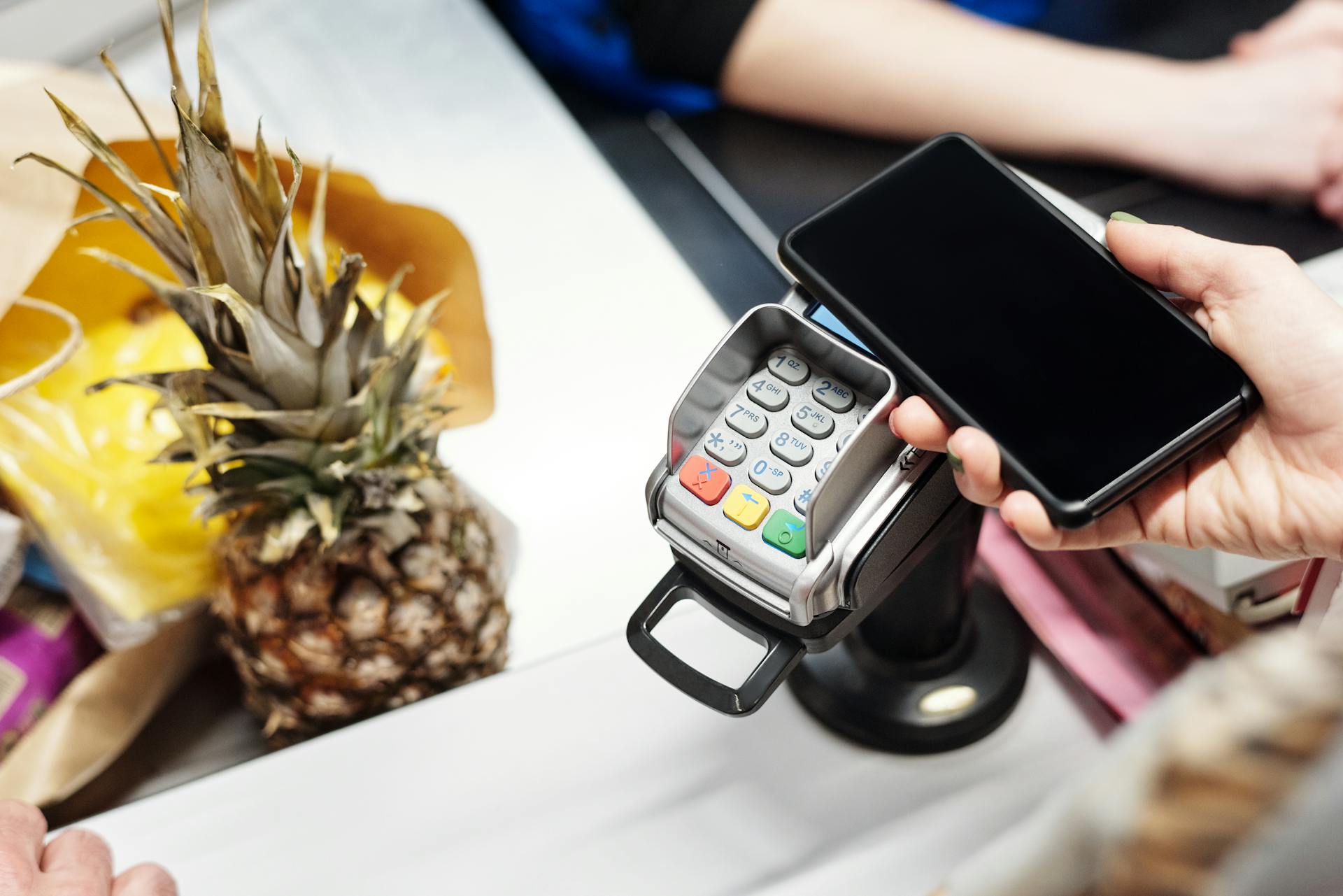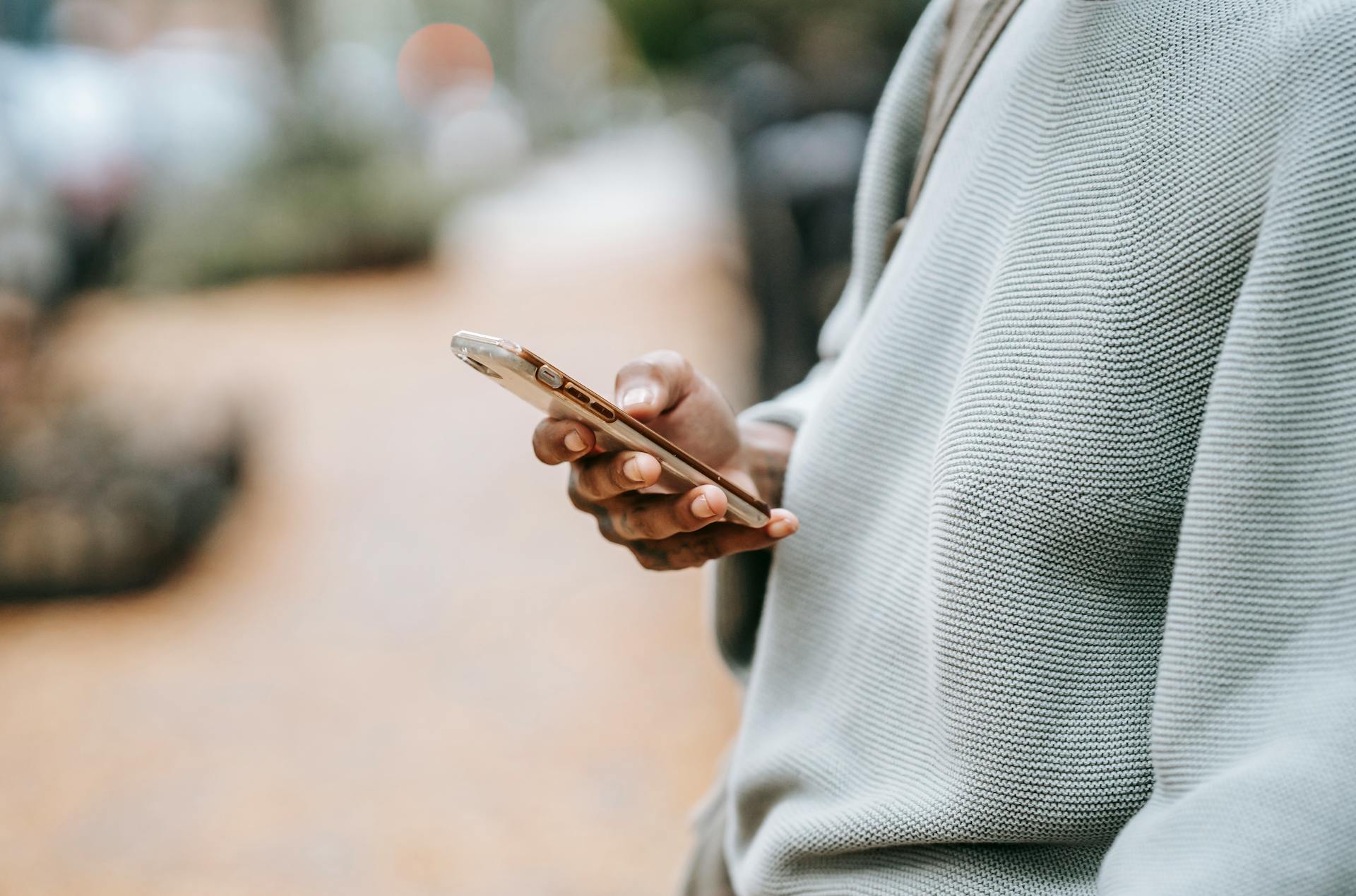
Venmo messages can be a convenient way to communicate with friends and family, but they can also be used to scam people out of their money. Be cautious of messages that ask for money or personal info, as they may be phishing attempts.
Venmo messages can be sent to anyone, even if you're not connected on the platform. This can make it easier for scammers to reach a large number of people.
Scammers often use fake Venmo messages to trick people into sending them money. They may claim to be a friend or family member in need of help, or they may use a fake Venmo username to make it seem like the message is coming from someone you know.
You should never send money to someone you don't know, even if the message seems convincing.
Related reading: Delete Messages
Common Scams to Avoid
If you receive a text message claiming to be from Venmo, be cautious of links that ask you to log in to your account. These links are likely phishing attempts designed to steal your personal information.
Venmo's multi-factor authentication process does not include links, so if a message asks you to click on one, it's probably a scam. Always contact Venmo Support directly if you have any doubts about the authenticity of a message.
Scammers may also impersonate your friends on Venmo by changing their username and profile picture. They'll then send you a payment or request money, claiming it's an urgent issue. If you receive an unusual payment or request, double-check that it's actually from your friend.
To avoid falling for these scams, tap on the profile to confirm their public transaction history and network information. If you're still unsure, reach out to your friend outside of Venmo to verify the request.
Some scammers may send you a payment by mistake and then ask you to send it back as a new payment. This is a classic scam tactic, so be wary of such requests.
Here are some common Venmo scams to watch out for:
- Phishing attempts via fake Venmo messages
- Impersonation of friends on Venmo
- Emergency money requests from scammers posing as loved ones
- Scammers sending payments by mistake and asking you to send it back
To stay safe on Venmo, always be skeptical of unexpected messages and requests, and never click on links or send money without verifying the authenticity of the request.
Phishing and Scams
Be skeptical of any Venmo messages that ask you to click a link to sign in, as these are often scams designed to steal your information or install malware. Scammers may impersonate Venmo and try to get you to log into your account via a fake version of the multi-factor authentication process.
If you receive a message from someone who looks like a friend, double-check that the request is actually from your friend before accepting the payment request. Scammers may change their username and profile picture to impersonate someone you may know.
Here are some common phishing and scam tactics to watch out for:
- Fake Venmo emails or texts that ask you to verify your financial or personal information by clicking a link or filling out a form.
- Scammers who pose as a loved one and contact you saying they have an emergency and need you to send money on Venmo now.
- Fake prize or cash reward messages that ask you to sign into your Venmo account or enter information about your Venmo account.
Never share verification codes with anyone, and ignore anyone who claims to be from Venmo asking to confirm your identity. No one from Venmo will contact you asking for a verification code.
A fresh viewpoint: Venmo Bank Account Verification Not Working
Fake Prize or Reward
Fake Prize or Reward scams are a common phishing tactic used to trick you into sharing sensitive information or transferring money. Scammers may send a text message or email claiming you've won money from Venmo, with a link to sign into your account or enter information about it.
The link might ask you to click on it, which can lead to malware or viruses being installed on your device. This can compromise your personal data and put your account at risk.
Here's how to spot this scam:
- Be wary of unsolicited messages claiming you've won money from Venmo.
- Never click on links asking you to sign into your Venmo account or enter sensitive information.
If you're unsure about a message, it's best to contact Venmo directly to verify the authenticity of the claim.
Phishing Messages
Phishing messages are a common way scammers try to trick you into giving away sensitive information. They may impersonate Venmo and send you a fake version of the multi-factor authentication process, asking you to log in via a link that will actually phish your personal information.
Venmo's real multi-factor authentication message does not contain a link for you to click, so be wary of any unexpected texts with links. If you're unsure about a message, contact Venmo Support directly.
Scammers may also send fake Venmo emails or texts asking you to verify your financial or personal information by clicking a link or filling out a form. Never provide login details from a link sent to you in a text or email.
Related reading: How to Send Pay Stubs through Email
Here are some red flags to watch out for in phishing messages:
- Links that ask you to sign in or provide sensitive information
- Urgent or time-sensitive messages that try to scare you into acting quickly
- Messages that ask you to verify your account or information
If you receive a phishing message, don't click on any links or respond to the message. Instead, contact Venmo Support directly to report the incident.
Transaction Safety
Transaction Safety is a top priority on Venmo. You can rest assured that your transactions are protected by a robust security system.
Venmo uses two-factor authentication to add an extra layer of security to your transactions. This means that even if someone has your password, they won't be able to access your account without the second form of verification.
You can also report any suspicious activity to Venmo's customer support team. They have a dedicated team that works around the clock to investigate and resolve any issues.
Venmo's Zero Liability policy protects you from unauthorized transactions. If you notice any suspicious activity, you can contact Venmo's support team to report it and have the transaction reversed.
It's worth noting that Venmo has a strict policy against phishing and other types of scams. They will never ask you to provide your password or other sensitive information via email or text message.
Here's an interesting read: Venmo Policy
Caption Safety
Caption Safety is crucial when sending Venmo messages, especially if you're splitting bills with friends or family.
Always include a clear description of the transaction, such as "Rent for June" or "Dinner at Joe's".
This helps prevent confusion and ensures the recipient knows what the payment is for.
Selling to a Stranger
Be cautious when selling to someone you don't know. A scammer may ask you to provide the item or service without actually paying you legitimate funds.
They might use fake emails to make it seem like they've paid you on Venmo, when in reality, no payment has been made. This is a common tactic scammers use to trick you.
Another red flag is when they claim to have sent a payment that will only reach your Venmo account when you ship the item and upload the shipping information. But this is not a feature Venmo provides, and it's a sign of a scam.
If a scammer pays you using stolen credit cards or bank information, the money could be removed from your Venmo account if the actual owner reports unauthorized activity.
To stay safe, be wary of any payment methods that seem suspicious or unverifiable.
If this caught your attention, see: What Does It Mean When Messages Are Indexing?
Food Captions

Food captions can be a fun and creative way to express yourself on Venmo, but they can also be a recipe for disaster if you're not careful.
Some captions are just plain rude, like "Because I spilled your coffee" or "I'm really sorry I ate your food." These kinds of captions can be hurtful and may lead to some awkward conversations.
On the other hand, some captions are just plain funny, like "Coffee is best when free" or "I don't want to taco bout it." These kinds of captions can add some humor to your Venmo conversations and make them more enjoyable.
If you're looking for some inspiration for your own food captions, here are a few ideas:
• "I got a coffee, so you get a coffee!"
• "You have been brunched"
• "My one, my only, my pasta plug"
• "An extra dollar for every bite I took of your food <3"
Remember, the key to using food captions safely is to be respectful and considerate of the other person's feelings. Take a moment to think before sending a caption, and ask yourself if it's something you'd want to see in a caption about you.
Recommended read: Creative Venmo Captions
Obscure Captions

Obscure Captions can be a concern for Caption Safety. Some Venmo users use humorous or misleading captions to avoid revealing the true purpose of the transaction. For example, a user might write "This is not my money" when sending cash to a friend.
These captions can be confusing, especially for those who don't know the sender or recipient. It's not uncommon for people to worry that the money is being sent for an unexpected or suspicious reason. For instance, a caption like "Sorry about the carpet" might raise eyebrows, but it's likely just a joke.
Some users even use captions that are intentionally vague or cryptic, like "For that thing at that gas station that one time." These captions can make it difficult to understand the context of the transaction. In some cases, the caption might not even be related to the transaction at all.
A table showing some examples of Obscure Captions and their possible meanings:
It's worth noting that some captions might be intentionally misleading or even threatening, like "Calm down, b*tch, I have your money!" or "Shut up and take my money." These types of captions can be concerning and may indicate a more serious issue.
Frequently Asked Questions
Does Venmo send out text messages?
Yes, Venmo may send text messages to users about account activity, often from the number 86753. Learn more about Venmo's communication methods and how to manage your notifications.
How do you send a message on Venmo?
To send a message on Venmo, add a note to a payment or request with your message and send it to the recipient. This allows you to communicate with friends and family while making transactions.
Sources
- https://help.venmo.com/hc/en-us/articles/360048404533-Common-Scams-on-Venmo
- https://www.avast.com/c-how-to-avoid-venmo-scams
- https://www.cosmopolitan.com/lifestyle/a38849427/funny-venmo-caption-ideas/
- https://www.seventeen.com/life/tech-social-media/a29788844/funny-venmo-captions/
- https://www.townandcountrymag.com/society/money-and-power/a28244165/venmo-etiquette-guide/
Featured Images: pexels.com


